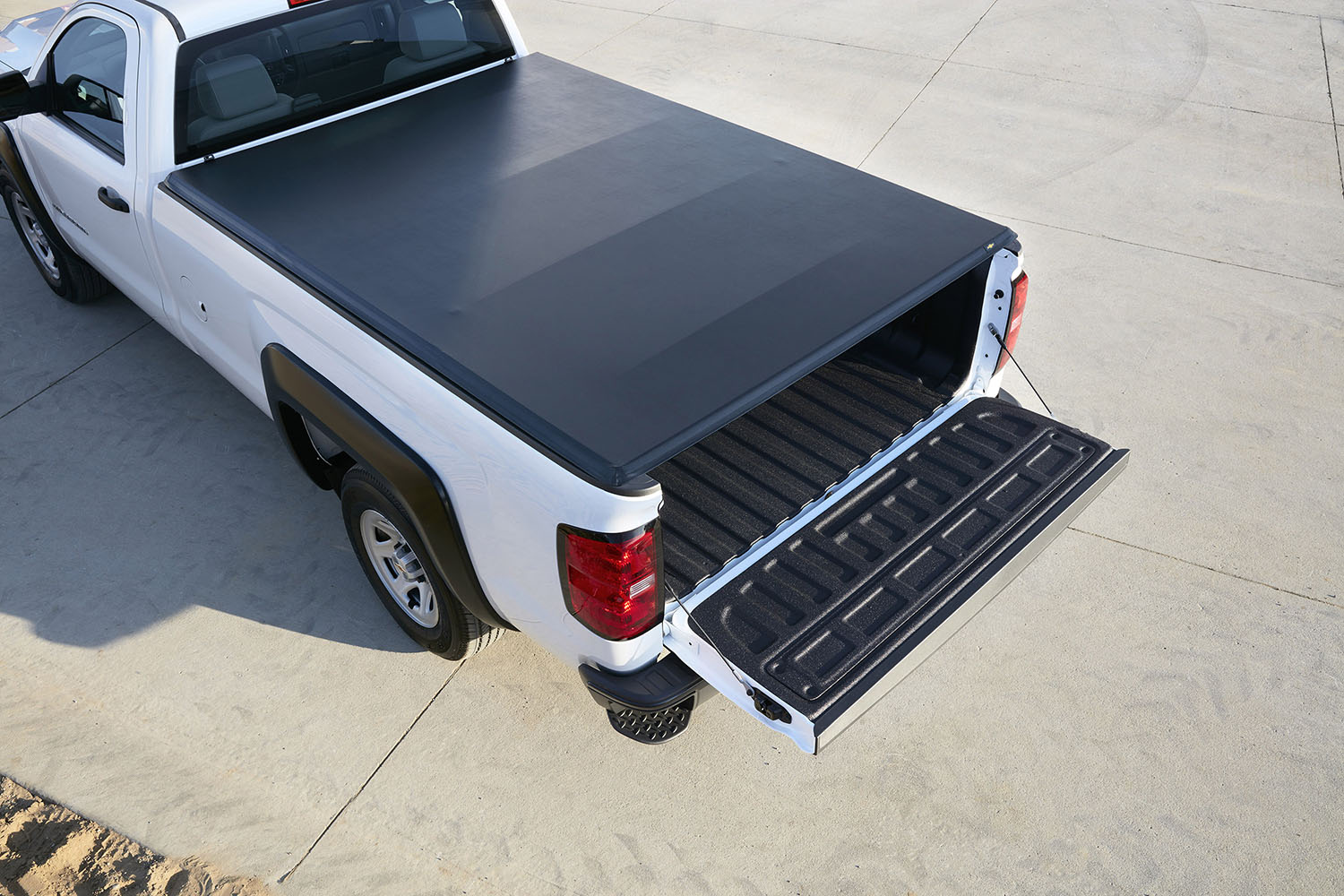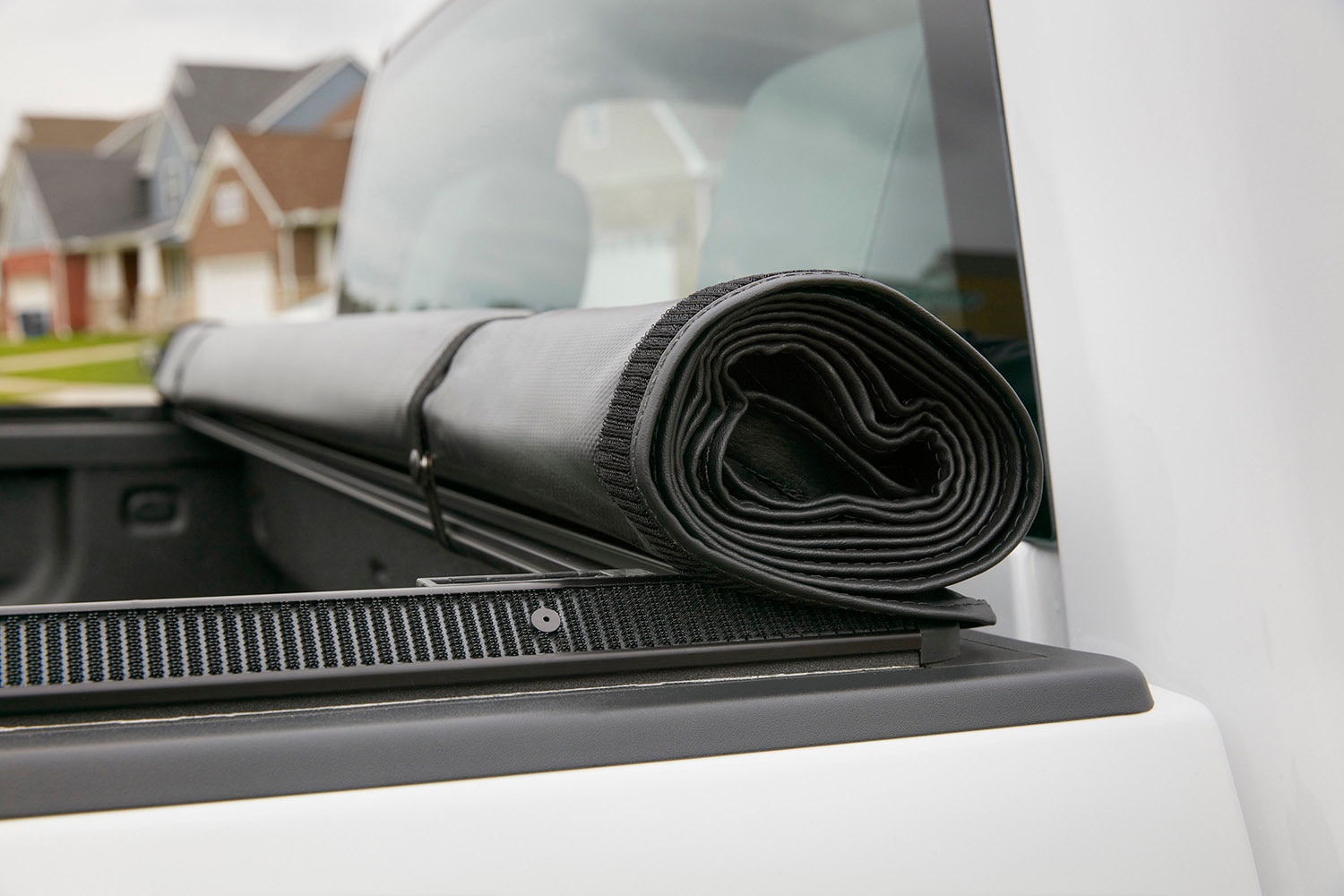What Is a Tonneau Cover?
The surprisingly rich history of the truck-bed cover and why we call it a "tonneau."
 Chevrolet
Chevrolet
You've searched for and found the right pickup truck to serve your needs. You've got a wide-open bed to haul all kinds of stuff around. But how do you protect your cargo from theft? Or inclement weather? Or the possibility that things will go flying on the highway? This is where a tonneau, or truck-bed cover, comes into play.
Let's learn a bit about what a tonneau is, its origins, how early speed chasers popularized the term, and the wide range of types and styles available on the market today.
You Say "Barrel," I Say "Tonneau"
"Tonneau" is a French word referring to a barrel or cask used in winemaking. As transportation transitioned from the horse-drawn carriages and wagons of the 19th century to the nascent automotive industry of the early 20th, so did the terminology for open-compartment covers.
A popular option for those long-ago automobiles was an open rear passenger compartment. Thanks to those compartments' rounded, barrel-like shapes, the term "tonneau" replaced the once ubiquitous "tarpaulin" (or tarp) from the horse-and-carriage days. The first tonneau covers came with those early cars and were usually made from soft leather.
Before becoming common usage for modern pickup owners, however, the term tonneau would be brought to prominence by an entirely different set of drivers and through a completely different type of vehicle.
From the Salt Flats to the Work Site
An unexpected location in tonneau-cover history is northwestern Utah's Bonneville Salt Flats, where early racers used the term for the covers they'd employ to aid the aerodynamics of the first speed-record-chasing cars. In that environment, a tonneau cover could (and would) be made from just about anything — leather, bedsheets, canvas — as long as it reduced drag from the car's open rear.
Although rarely, if ever, seen in sports cars these days, it was a different story during the mid-20th-century heyday of the classic roadster, when tonneau covers were a common sight among drivers who wanted an extra aerodynamic edge and also wanted to protect their interiors from the elements. There are still aftermarket tonneau covers available for Shelby Cobras and Jaguar E-Types.
As pickups have risen in popularity, the tonneau cover has become associated almost exclusively with them. There are plenty of tonneau options to be had — there might be as many types of covers as there are uses for a pickup.
 Chevrolet
Chevrolet
Modern Trucks, Modern Tonneau Covers
Modern pickup drivers have more to choose from than the leather or canvas covers that were around in the early days. Chevrolet, for example, offers both tri-fold and roll-up covers in vinyl. The advent of the performance and show truck has led to slick, one-piece covers to improve aerodynamics, fit, or aesthetics. Off-roaders have heavy-duty options that can take an outdoor beating while protecting cargo. Working trucks can take advantage of tonneau covers incorporating a toolbox with additional pockets and compartments. No tonneau cover is all-purpose, however; you may have to search multiple outlets to find a suitable cover for your truck's make and model.
Written by humans.
Edited by humans.
 James Tate
James TateJames Tate has been writing about cars professionally for 15 years and he remains obsessed with them. He enjoys digging into the incredible technology of new vehicles as much as he likes the tactility and the driving experience of yesterday’s cars. He has written for a variety of legacy automotive magazines and websites.
Related articles
View more related articles